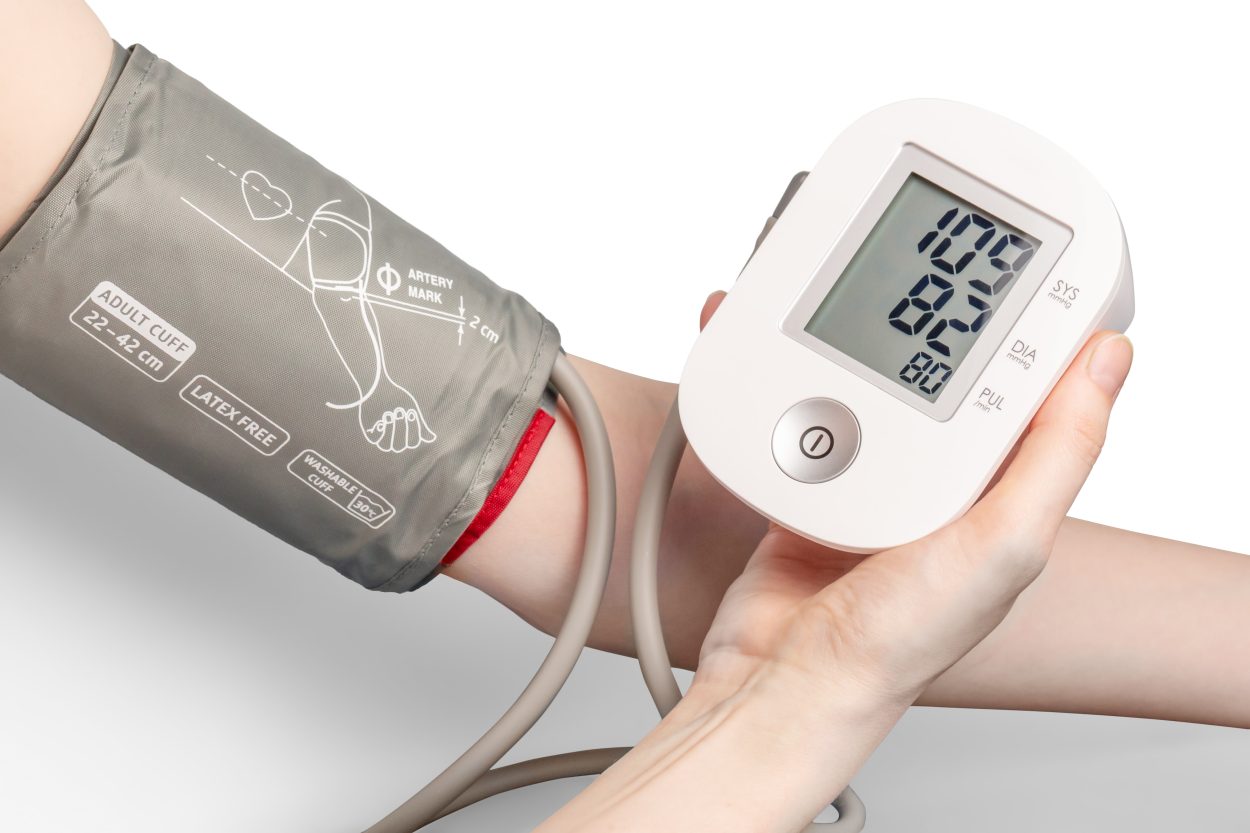Nowadays coffee is considered to be a must-have caffeinated drink to meet the energy fix during an afternoon slump or for pulling an all-nighter.
The drink is widely consumed by different groups of people, no matter their age since its affordable and found at almost every convenience store. In this fast-moving society, a caffeinated boost like coffee gives you a reason to keep going even after stacks of work pile.
Reviews and reports have revealed several health benefits offered by coffee apart from giving an energy boost and better endurance capacity.
However, if you’re on special supplements or have any underlying medical condition, you should know whether the drink is affecting any of your body systems in a negative way. Like whether it affects your blood vessels or not, the transportation tunnel for all your nutrients.
The caffeine in coffee can dilate blood vessels and increase blood pressure. But it can also open blood vessels and improve circulation. However, the predominant effect of caffeine is dilating the blood vessels. Withdrawal from caffeine can also open blood flow and enhance overall heart health.
The blood vessels of the circulatory help in transporting blood all over the body and maintains normal blood pressure. Any changes in the regular activity of the blood vessels may create unwanted health concerns for an individual.
This is why you should know the effects of what you’re putting inside your body and take precautions if needed.
In the following sections, I’ll be discussing more the effects of coffee on the dilation of the blood vessels and some related queries.
Let’s get started!
What Does Caffeine Do To Blood Vessels?
The caffeine present in the drink would make the blood vessels narrower but the final predominant effect will ultimately open the blood vessels.
In many cases, withdrawal from the caffeinated drink also increases the flow of blood in the brain that has been associated with blood vessel dilation. Overdosage of the caffeine content may result in an adaptation of the vascular adenosine receptor system to remunerate for this shrinking of the vessels due to caffeine.
According to research, the blood vessels can narrow as much as 27% after consuming caffeine which can significantly lower down your ability to focus and perform. This constriction of blood vessels is known as vasoconstriction. The potential side effects of vasoconstriction include:
- High Blood Pressure
- Headache
- Pale skin
This chronic side effect of caffeine might stem from the changes in the number of adenosine receptors and in the overall caffeine tolerance of the body.
However, the vasoconstriction effect of the caffeine may be short-lived and the predominant effect of caffeine on the vascular wall is vasodilating. So initially the coffee will contract your blood vessels but as your tolerance level increases, the overall effect of the stimulant will open the blood vessels.
Does Caffeine Open the Blood Vessels?
Caffeine can open the blood vessels because the indirect vasoconstrictor effect produced by caffeine may lead to a significant vasodilator effect afterward.
This opening of the blood vessels is a predominant effect of caffeine on the vascular wall. The mechanism acts equally on the vascular smooth muscle cells (VSMC) directly or indirectly and on the endothelial structure. Caffeine also creates different effects depending on the type of stimulus.
This dilation of blood vessels mostly does good to the body like increasing the flow of blood all over the body. Ultimately, it leads to the supply of more oxygen to the tissues.
In medical practices, dilation of the vessels or vasodilation is used as a treatment for several health conditions.
Does Coffee Increase Blood Flow?
Coffee may increase the blood flow through your circulatory system and muscle tissues.
When you start to take your coffee, the caffeine makes the blood vessels narrower, impeding the flow of blood in your body. However, since the predominant effect of caffeine is vasodilating, after a brief period of time, the blood flow will automatically come back to normal.
A study from Japan suggests that the blood vessels work fine and even better from the regular consumption of coffee. American Heart Association revealed that about 30 percent of the increase in blood circulation can be associated with a cup of caffeinated drink.
As a result, the microvessels help the easy flow of blood through the circulatory system and this may also help in easing the strain on the heart and heart-related concerns.
Does Coffee Cause Plaque In Arteries?
Coffee does not cause plaque in the arteries. The claim over the association between the drink and the artery was affected due to the presence of contributing factors such as age, height, weight, gender, ethnicity, health condition, high blood pressure, and alcohol intake by the individual.
Stiffness of the arteries increases the pressure on the heart and the chance of a person having a heart attack or stroke. This is why studies have shown a concerning view on the effects of the regular consumption of coffee on arterial pressure.
In most cases, caffeine is always considered as the factor behind several disruptions in the nervous and cardiovascular system since its a neuro stimulant.
However, modern research has been preassuming that there might be other substances present in the beverage that might affect the arterial pressure as well.
The study from the British Heart Foundation, it is shown that the results on the effect of caffeine on arterial pressure have varying conclusions depending on the hypertensive, stress factor, and age of the population group.
The final conclusion stated that as the tolerance of the body increases, the caffeine’s effect on arterial pressure diminishes for a significantly good amount of time.
Does Coffee Clot Blood?
Coffee itself doesn’t clot blood but it also doesn’t give any protection from the coagulation process.
Caffeine offers ample health benefits such as preventing the risk of type 2 diabetes, Parkinson’s disease, liver disease, kidney stones, Alzheimer’s disease, and heart strokes. However, since caffeine is a stimulant drug, overconsumption won’t bring significant benefits.
A 2008 study published by the British Journal of Nutrition reveals that coffee might have an indirect effect on the formation of a blood clot as it can inhibit the aggregation of platelets.
This clot forming inside the blood vessels may lead to cramping pain and swelling in the muscle of the leg or arm. Persistent chest pain may also be followed by increase risks of heart strokes and cardiovascular diseases.
On a different note, the World Heart Federation suggests that there might be several other factors behind the clotting of the blood. These include obesity, high blood pressure, high cholesterol, smoking, physical inactivity, unhealthy diet, and using estrogen replacement medications.

Even if you’re healthy and have a good cholesterol level and blood pressure, there’s still a safe limit of caffeine that shouldn’t be crossed.
Caffeine itself won’t prevent the clotting however the antioxidants present in the drink might help in preventing it. So it’s better to keep a check on the body’s underlying medical condition to have a proper overview of your health.
Don’t worry about the coagulation of the blood if you’re having a moderate cup of coffee every day unless you have a pathological condition that may increase the risk.
How Does Coffee Affect Blood Circulation?
The caffeine in coffee is what affects blood circulation. It does so by acting as a vasoconstrictor at first, then eventually, a vasodilator that can open your blood vessels and allow easy blood flow.
From the above details, you can tell that coffee itself doesn’t alter the circulation of the blood. It’s caffeine that affects blood circulation.
The immediate and initial effect is vessel constriction. Thus, there remains low space for blood to flow which makes the heart pumping more than usual and an increase in blood pressure.
However, this vasoconstriction effect of caffeine is temporary. If you’re a habitual drinker, you’ll face a dominant vasodilating effect that will open up the vessels and enable easy flow of blood throughout the tissues.
How Does Coffee Affect The Heart Rate And Blood Pressure?

The stimulants present in coffee have the ability to cause an increase in blood pressure thus affecting heart rate and blood pressure.
Though the main reason behind this is still unclear, it can be assumed that the neuro stimulating effect of caffeine indirectly plays a part in regulating arterial pressure.
It’s clear that the changes in heart rate or pressure are more prominent for the occasional drinkers. For regular drinkers, their body gradually increases the tolerance level due to repetitive exposure to caffeine so in this case, caffeine won’t have a long-term effect on their blood pressure.
This rise in blood pressure differs from person to person depending on the potential moderators such as caffeine tolerance, age, family history of hypertension, borderline hypertension, etc.
However, if you have high blood pressure already, consult your health care provider for a healthy amount of intake. Avoid caffeine right before exercise. The recommended amount of intake is 400 milligrams of caffeine a day as set by the US Food and Drug Administration.
I’d suggest keeping the intake amount within 50-100 milligrams since this amount is enough for a quick boost and most importantly, this won’t exhibit any side effects.
This review of the study shows that caffeine is responsible for the rise in systolic and diastolic blood pressure. However, synergistic effects that can have a potential risk are rarely reported. The long-term effects of caffeine on the heart rate and pressure are minimal. The state of the condition will surely depend on the risk of hypertension for the individual.
Is Caffeine A Vasodilator Or A Vasoconstrictor?
Caffeine is both a vasoconstrictor and a vasodilator.
Initially, the caffeine will exhibit a mild and transitory vasoconstrictor effect. The extent of this effect will further depend on the concentration of the caffeine in the VSMC.
The dominant effect of caffeine on the vascular wall will be vasodilating that acts both on the VSMC and endothelial level. This leads to arterial vasodilation and increases the blood flow in working muscles.
Thus, many may have conceived the idea that caffeine bears a significant vasoconstriction effect in smooth muscles. Well, this isn’t entirely false but the constriction of the vessels persists for only a short period of time and the primary effect is of vasodilator.
Does Decaf Coffee Constrict Blood Vessels?
Decaf coffee won’t constrict the blood vessels since the main contributory factor to it, caffeine is absent in the drink.
Decaf coffee gives you a similar caffeinated boost to regular coffee but the only thing that’s missing is caffeine. As medical researchers have concluded that caffeine may increase blood pressure for a short time, decaf coffee won’t do it since the drink contains zero to low amounts of caffeine.
During raising the blood pressure, caffeine tightens the blood vessels and makes less space for the blood to flow. This causes stress and hypertension as the heart reacts to the stimulant by boosting blood pressure.
Even if the rise in blood pressure is a temporary effect, one with underlying medical conditions and a family history of hypertension may take notes of any of the unpleasant symptoms.
Caffeine is present in many of the daily food items consumed so you can’t avoid it completely. In this case, decaf coffee can be a wise choice. You are cutting down the caffeine and still can enjoy a freshly brewed cup.
This study on the Effect of decaffeinated versus regular coffee on blood pressure also stated that when you replace the regular cup of joe with the decaffeinated one, there’s a real but small fall in blood pressure.
Does Coffee Cure Or Cause Headaches?
If you’re taking it once in a while, the caffeine may give you acute headache relief along with better endurance capacity and increase focus. However, when you start to take coffee regularly in multiple cups, your caffeine tolerance is gradually increased and your body starts to crave more of the stimulant each time it gets it.
The answer is relative since the effect of coffee on an individual’s metabolism will depend on how regularly he/she’s drinking it.
This shows that your daily dose of caffeine will become less potent gradually due to your repetitive consumption of coffee and in this way the brain develops a mutual dependency on the drink.

When the brain won’t be getting its desired caffeinated boost, certain withdrawal symptoms are seen that include headache, fatigue, dizziness, and nausea. Note that all these are symptoms of migraine as well.
Even the real mechanism behind the effects on the brain is still a debatable topic, I can clearly state that caffeine affects the naturally occurring brain substance adenosine which leads to certain triggering functions.
So, in the case of occasional drinkers, caffeine may help in eradicating the tickling sensation of headaches but for regular avid drinkers, the same drink might be the cause of headache. This is because whenever your body won’t be getting the caffeine, it’ll show the symptoms of caffeine withdrawal that includes a headache.
In cases like these, it’s best to be aware of how much caffeine you’re putting in your body. Here’s a data table comparing the amount of caffeine in popular coffee drinks.
| Brand | Serving Size | Caffeine Content |
| Starbucks Coffee Coffee Frappuccino | 13.7 oz. | 110mg |
| Death Wish Coffee Co. Unsweetened Cold Brew | 8 oz. | 300mg |
| La Colombe Triple Shot Draft Latte | 9 oz. | 175mg |
Bottomline
Caffeine does have a vasoconstrictor effect for a brief amount of time but the predominant effect is vasodilation.
Whether it’s vasoconstriction or vasodilating since caffeine is a stimulant too much of the drink would result in chronic effects in the number of adenosine receptors in the overall changes of their functions.
In many cases, coffee alone may not be the sole reason for changes in arterial function. There has been differentiation in varying effects of arterial pressure and blood vessel dilation depending on stress factors, age, and hypertensive.
This means that you need to maintain a healthy lifestyle habit to protect your body from certain health concerns.
To avoid mutual dependency on the drink, the best tactic is to consume it in moderation. Drinking in moderation will also help you in reaping the best outcomes from coffee. There are several healthier options available that you can choose from. Go for the one that suits you best and drink in limit.
Other Articles
- Health Benefits of Coffee: Reasons Why Coffee is Good for You
- Does Coffee Give You Heart Palpitations? (Explained)
- Does Coffee Deplete Calcium? (Surprising Fact)
Click here to view the Visual Story Version of this Article.
Contents
- 1 What Does Caffeine Do To Blood Vessels?
- 2 Does Caffeine Open the Blood Vessels?
- 3 Does Coffee Increase Blood Flow?
- 4 Does Coffee Cause Plaque In Arteries?
- 5 Does Coffee Clot Blood?
- 6 How Does Coffee Affect Blood Circulation?
- 7 How Does Coffee Affect The Heart Rate And Blood Pressure?
- 8 Is Caffeine A Vasodilator Or A Vasoconstrictor?
- 9 Does Decaf Coffee Constrict Blood Vessels?
- 10 Does Coffee Cure Or Cause Headaches?
- 11 Bottomline
- 12 Other Articles


